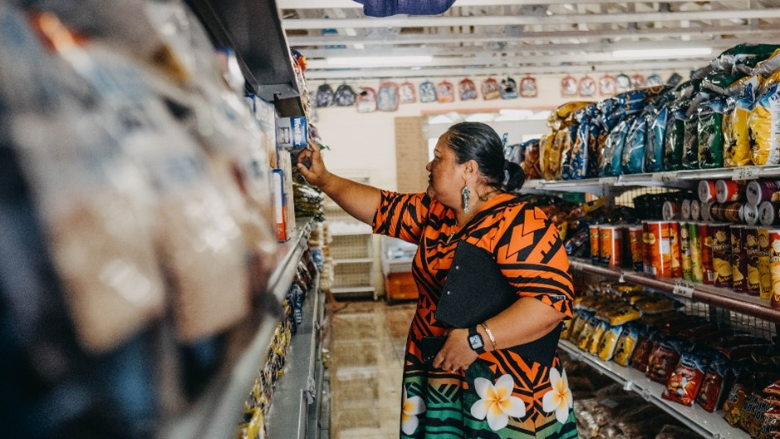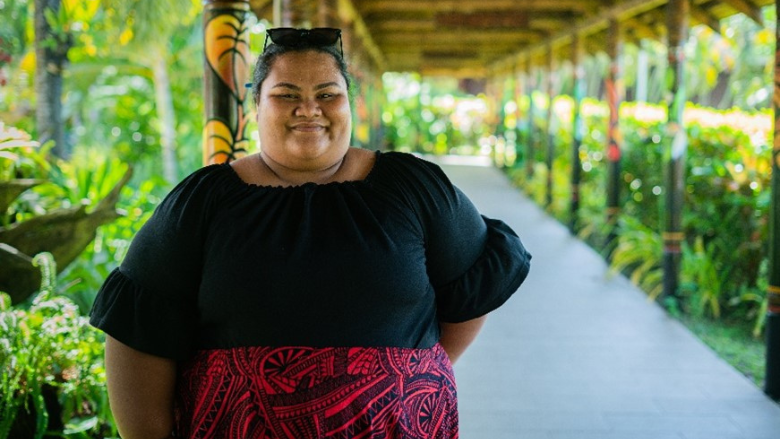“I go to villages to do outreach programs,” says Falu Seiuli, a Public Health Nurse at Safotu District Hospital. “It is a good opportunity to work in communities and schools. It’s challenging, but doing the work has brought me more confidence, especially when I’m out in villages, you really have to engage.”
Recent reports indicate that 4 of Samoa’s 8 rural district hospitals now have fully expanded health teams in place and recruitment is underway to finalise vacant positions in the other 4.
Prevention is better than a cure
Preventing NCDs before they require treatment is also part of the plan. There is an impressive campaign underway to teach and model healthy behaviours for all Samoans.
“Health promotion is a process ... enabling the people to take ownership of their health,” says Faga Simi, the Principal Health Promotion Officer with the Ministry of Health. “[It] has been highly considered as the key area to address NCDs.”
Exposure to the health promotion program starts in school, where students from Grades 1-8 are weighed and assessed for their risk of developing NCDs. Children who are at risk are placed on a 10-week program, which improves their knowledge of how to have a healthy lifestyle and gets them involved in physical activities. In the first 3 years of implementation, Samoa’s healthy eating and active living program reached 49 primary schools in 17 districts with more than 80 percent of students screened for risk factors and targeted support provided to manage their nutritional and physical health.
To spread the message about healthy living more widely, the Ministry of Health developed the “change for life” campaign. These ads cover topics like smoking, obesity and the need to exercise and eat fresh food. They are played in hospital waiting rooms throughout the country and were even broadcast during the 2021 Rugby League World Cup, when the entire nation followed Samoa’s first World Cup finals appearance.
Back in Saleilua village, the nation-wide ad campaign is brought to life by Mata and her women’s committee, who are busy planting vegetable gardens and setting up activities to help people get active, like volleyball, rugby and Zumba.
“Everyone looks forward to the Zumba. The ladies finish their chores quickly when it’s Zumba day!” says Mata. “A lot of people have lost weight and are much healthier.”
The campaigns are working. A knowledge, awareness and practice survey conducted in 2023 showed that 97% of respondents had improved understanding of NCD risk factors.








